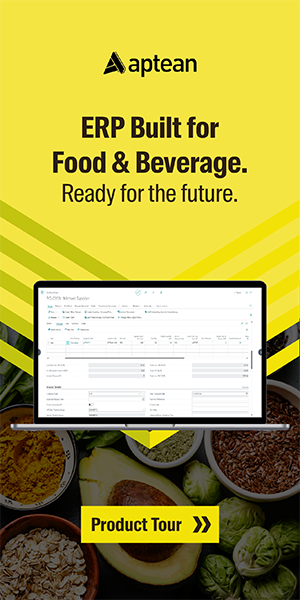It has been a busy few weeks for IFS – hosting its flagship Unleashed event in Orlando, attendance increased by 50 percent on previous years and product and partnership announcements came in galore.
Standing firm on its six-sector focus, IFS CEO Mark Moffat promised in the opening keynote: “We are steadfast on these six industries and we are not wavering on that”. Those special six being aerospace and defense, construction and engineering, energy, utilities and resources, manufacturing, service industries and telecommunications.
It’s a bold stand – especially given that IFS’ biggest competitors are instead diversifying to cover an increasing number of industry specialisms and broaden their market wins. With Moffat pledging in the same breath to make IFS “the undisputed category leader” for industrial software, you’d be sharp to question how he looks to make the lofty goal a reality.
Accompanying that pledge came a flurry of software announcements and partnership grabs:
The AI bandwagon
Industrial AI was the Belle of this ball, with over 60 new “deep industrial” IFS.ai features introduced in the IFS Cloud 24R2 release and 100+ promised by 2025.
A new AI-powered homepage, ‘Home’ for IFS Cloud will now offer live project status visibility, along with autodetection of anomalies, corrective action suggestions, and an expanding list of interactive widgets for users to build and service their assets more quickly and safely.
Twinned with Home, the IFS.ai Copliot has been fueled with additional preconfigured industry capabilities across generative and predictive AI and is now context-aware, providing relevant insights to where users are in the IFS cloud platform. A new prompt library can store each user’s set of pre-approved prompts to speed up LLM queries.
For the Asset Applications module, the new IFS.ai Copilot for FMECA (Failure Modes, Effects, Criticality Analysis) feature looks to optimize asset availability, reduce maintenance costs and mitigate risks. It claims to provide detailed analysis of the probability of asset failures, and the consequences of making or adjusting maintenance strategies. Further features seek to unlock insights from unstructured information such as manuals and maintenance reports to support and refine the analysis. Plus, with a Manufacturing Scheduling Optimization (MSO) Simulation capability, users can model the impact on new orders on the shop floor and asset managers can also use the simulation capabilities to more accurately predict and plan essential asset maintenance.
Integrating Industrial AI features into IFS Ultimo aims to enhance troubleshooting abilities and reduce the mean time to repair (MTTR) of organizations’ assets. With an estimated 80 percent of user time spent diagnosing a problem, IFS hopes to help companies gain back this lost resource, reducing admin and improving communication, especially given the sector’s shortage of skilled workers.
For the oil and gas industry, the latest iteration of IFS’ accounting solution – IFS BOLBO 15 – integrates IFS.ai for more efficiency and sustainability gains, offering a new interface, security enhancements at code, networking and data levels, and open data access and analysis through integration with Microsoft Power BI.
Purple partnerships
Building up its industrial specialism ever further after its Poka acquisition last year, IFS has been carefully consolidating partners relevant to its target industrial and service-led sectors, seeing the vendor win customers including Rolls-Royce Power Systems.
Fresh partnership news came with the announcement of a collaboration with PwC in a new IFS sustainability management module, released with this 24R2 IFS Cloud and built with PwC to support customer ESG disclosure challenges. Customers can manage sustainability data collection and performance tracking, helping companies comply with CSRD from 2025, offered with the promise that the standardized features will allow interoperability with future ESG directives too.
As part of the deal, the option is also there for IFS Cloud customers to use PwC’s ESG advisory services, including entity scoping, double materiality assessments, gap assessments, and implementation planning – a move fitting well with IFS’ nurtured ESG-conscious approach.
Elsewhere, a smooth move with a Boomi partnership, the integration platform provider, and a (slightly wooly on the details) deal with Microsoft have been announced. In a video call from Satya Nadella, broadcast on the Unleashed keynote stage, the Microsoft CEO chatted to IFS’ Moffat on the scaling blocks of industrial AI, and Nadella touted AI for helping us all “find patterns between people places and things”, and that with “the abundance of apps now available, you have a natural way to talk to the power of computers.”
Boomi CEO, Steve Lucas, also spoke of the opportunity ahead: “We’re excited about the partnership with IFS. I see an incredible opportunity across a range of capabilities, and more importantly, it’s about you.”
In all these deals, IFS is moving to make it ever easier for enterprises to compose their stacks and connect their software, understanding that it takes many assets to make a working ecosystem.
Is it enough to lead the industrial pack?
It was certainly an Unleashed filled with capabilities, but is it enough to lead the charge for the industrial and service sectors?
With IFS’ ongoing trajectory to target the big six industrial and service sectors, the firm is betting on its industry specialty in an otherwise ‘big-vendor-does-all-specialisms’ landscape.
The AI tools are nothing too revolutionary, with IFS Industrial AI moves similar to what’s playing out already across the big tech sphere, and it does beg the question of whether the enhancements are offering enough fresh innovation to win customers over from the other big software names.
It’s a good offering – by embedding AI tools deep in the workings of its platform offering and making it “the backbone” of its ERP, EAM, FSM and ITSM tools, it presents a prepackaged way for IFS users to get their slice of the new technology and box tick their innovation targets, with IFS (amongst other vendors offering the same) doing the “heavy lifting”. Plus, in the case of IFS, it promises AI capabilities without the need for expensive additional investments in toolkits or resources.
However, with a more deft customer touch than many IFS competitors, Moffat brings an empathic approach to big tech. We know the story – in his first 200 days as CEO, Moffat met over 200 customers in person to hear about their business needs directly.
Moreover, Unleashed also shared a way to actually chart a path for customer success with its Industrial AI capabilities. Teaming up with Celonis and Deloitte, IFS is offering an AI-powered value engineering service, allowing companies to use AI, digital twin and process mining technologies to discover hidden business outcomes and realize greater value, faster.
With this technology, IFS is claiming that there is potential to uncover $16bn across IFS target markets in terms of potential savings to be reaped.
What came across in the keynote was a level of understanding that certain sectors need to take it steady with fresh innovations, with not all customers wanting to be the test subjects for technology.
Luigi Sidoli, head of digital programs at BAE Systems, was clear that when it comes to inviting innovation, “it’s an evolution, not a revolution” and spoke of the business “needing the foundations in place first” for AI in an industry with no room for error. In this sense, BAE was a perfect use case for this tried and tested technology.
This comes alongside IFS’ Pioneer program, offering the chance for companies to take faster steps to adopt current innovations. Connecting IFS customers, such as Morgan Motor Company, directly with the product designers and builders, the program offers early access and enhanced technical support.
While other vendors are pushing for clean cores in a cross-market monopoly, there’s no doubt that the strength of IFS has for a while been this special understanding of its core target industry focuses.
Plus, this doesn’t mean to say Mark isn’t well aware of the market share up for grabs, saying: “We’re a $1.5bn dollar revenue company or thereabouts. And that needs to be five, six, seven, eight billion. The size of the market is that big.”
In a game of Monopoly where the big tech players are looking to spread out an empire, IFS is placing its bets on sticking tightly to its purple set of cards and – with a close eye and ear on customer wants – building on up.
Article by Stephanie Ball, IFS expert.






